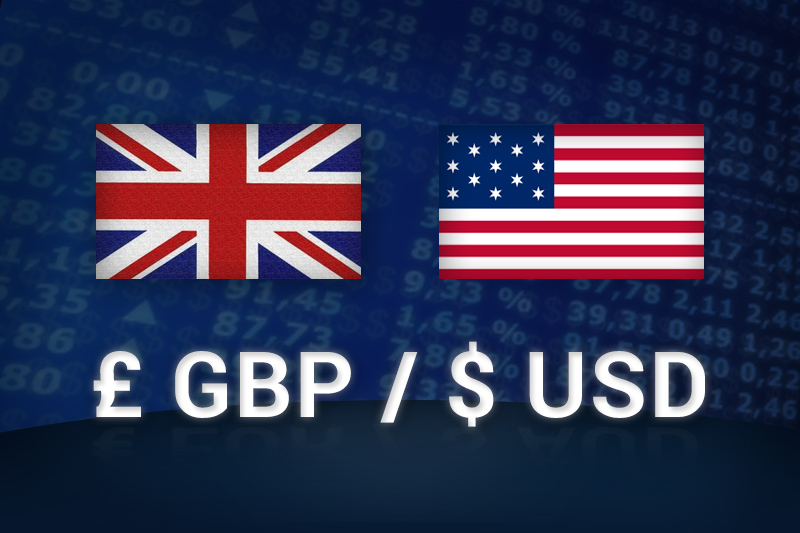Investing.com - The pound extended Thursday's losses against the dollar in to Friday as investors viewed the U.K. currency as due for a breather and the greenback as oversold.
In U.S. trading on Friday, GBP/USD was trading at 1.6030, down 0.78%, up from a session low of 1.6026 and off from a high of 1.6178.
Cable was likely to find support at 1.5956, the low from Sept. 24, and resistance at 1.6260, Tuesday's high.
A U.S. government shutdown that began earlier this week due to congressional inability to agree on a spending package pushed the dollar down to levels ripe for bottom fishing on Friday.
Trading was thin in a session previously scheduled to see the release of the U.S. September jobs report.
The Bureau of Labor Statistics said on its web site that it was not collecting data, issuing reports, or responding to public inquiries due to suspension of federal services.
Markets were also mulling how the U.S. political deadlock will affect negotiations to raise the U.S. debt ceiling, which the U.S. Treasury Department has estimated will be reached by Oct. 17.
International Monetary Fund head Christine Lagarde said earlier that failure to raise the U.S. debt ceiling could hurt the global economy and warned U.S. growth could drop below 2% this year.
Supporting the dollar, however, was a Standard & Poor's report stating that the debt ceiling debate is unlikely to change its U.S. sovereign rating.
"In our opinion, the current impasse over the continuing resolution and the debt ceiling creates an atmosphere of uncertainty that could affect confidence, investment, and hiring in the U.S. However, as long as it is short-lived, we do not anticipate the impasse to lead to a change in the sovereign rating. This sort of political brinkmanship is the dominant reason the rating is no longer 'AAA,'" the agency said.
Standard & Poor's stripped the U.S. of its coveted AAA rating in 2011 when brinkmanship surrounding a previous debt-ceiling debate sparked fears of a default.
"Standard & Poor's sovereign rating on the U.S. is 'AA+' with a stable outlook, which according to our rating criteria indicates that we believe there is a less than 1-in-3 chance of a rating change over the next two years."
Meanwhile, the pound continued to fall after hit-or-miss data sparked a round of profit taking.
The pound hit nine-month highs against the greenback in recent sessions.
In the U.K. on Thursday, the Markit research firm said its services purchasing manager's index ticked down to 60.3 in September from 60.5 in August, better than expectations for a decline to 60.0.
A separate report showed that house price inflation in the U.K. rose 0.3% last month, confounding expectations for a 0.5% increase after a downwardly revised 0.3% uptick in August.
The pound, meanwhile, was down against the euro and down against the yen, with EUR/GBP up 0.35% at 0.8460 and GBP/JPY down 0.64% at 156.13.
In U.S. trading on Friday, GBP/USD was trading at 1.6030, down 0.78%, up from a session low of 1.6026 and off from a high of 1.6178.
Cable was likely to find support at 1.5956, the low from Sept. 24, and resistance at 1.6260, Tuesday's high.
A U.S. government shutdown that began earlier this week due to congressional inability to agree on a spending package pushed the dollar down to levels ripe for bottom fishing on Friday.
Trading was thin in a session previously scheduled to see the release of the U.S. September jobs report.
The Bureau of Labor Statistics said on its web site that it was not collecting data, issuing reports, or responding to public inquiries due to suspension of federal services.
Markets were also mulling how the U.S. political deadlock will affect negotiations to raise the U.S. debt ceiling, which the U.S. Treasury Department has estimated will be reached by Oct. 17.
International Monetary Fund head Christine Lagarde said earlier that failure to raise the U.S. debt ceiling could hurt the global economy and warned U.S. growth could drop below 2% this year.
Supporting the dollar, however, was a Standard & Poor's report stating that the debt ceiling debate is unlikely to change its U.S. sovereign rating.
"In our opinion, the current impasse over the continuing resolution and the debt ceiling creates an atmosphere of uncertainty that could affect confidence, investment, and hiring in the U.S. However, as long as it is short-lived, we do not anticipate the impasse to lead to a change in the sovereign rating. This sort of political brinkmanship is the dominant reason the rating is no longer 'AAA,'" the agency said.
Standard & Poor's stripped the U.S. of its coveted AAA rating in 2011 when brinkmanship surrounding a previous debt-ceiling debate sparked fears of a default.
"Standard & Poor's sovereign rating on the U.S. is 'AA+' with a stable outlook, which according to our rating criteria indicates that we believe there is a less than 1-in-3 chance of a rating change over the next two years."
Meanwhile, the pound continued to fall after hit-or-miss data sparked a round of profit taking.
The pound hit nine-month highs against the greenback in recent sessions.
In the U.K. on Thursday, the Markit research firm said its services purchasing manager's index ticked down to 60.3 in September from 60.5 in August, better than expectations for a decline to 60.0.
A separate report showed that house price inflation in the U.K. rose 0.3% last month, confounding expectations for a 0.5% increase after a downwardly revised 0.3% uptick in August.
The pound, meanwhile, was down against the euro and down against the yen, with EUR/GBP up 0.35% at 0.8460 and GBP/JPY down 0.64% at 156.13.
